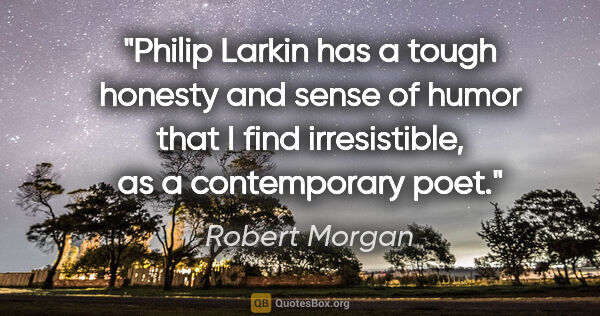Contemporary Quotes (page 6)
This was in [Orwell's] 1946 'Politics and the English Language,' an essay that despite its date (and its title's basic redundancy) remains the definitive SNOOT statement on Academese. Orwell's famous AE translation of the gorgeous 'I saw under the sun that the race is not to the swift' in Ecclesiastes as 'Objective consideration of contemporary phenomena compels the conclusion that success or failure in competitive activities exhibits no tendency to be commensurate with innate capacity, but...
David Foster Wallace

For Death must be somewhere in a society; if it is no longer (or less intensely) in religion, it must be elsewhere; perhaps in this image which produces Death while trying to preserve life. Contemporary with the withdrawal of rites, Photography may correspond to the intrusion, in our modern society, of an asymbolic Death, outside of religion, outside of ritual, a kind of abrupt dive into literal Death.
Roland Barthes
Our contemporaries are constantly wracked by two warring passions: they feel the need to be led and the desire to remain free. Unable to destroy either of these contrary instincts, they seek to satisfy both at once. They imagine a single, omnipotent, tutelary power, but one that is elected by the citizens. They combine centralization with popular sovereignty. This gives them some respite. They console themselves for being treated as wards by imagining that they have chosen their own...
Alexis de Tocqueville
Feminist education? the feminist classroom? is and should be a place where there is a sense of struggle, where there is visible acknowledgment of the union of theory and practice, where we work together as teachers and students to overcome the estrangement and alienation that have become so much the norm in the contemporary university.
Bell Hooks
Religion and ethics were not always - or even frequently - mutually compatible. The demands of religious absolutism or fundamentalism or rampaging relativism often deflected the worst aspects of contemporary culture or prejudices rather than a system which both man and God could live under with a sense of real justice.
Dan Simmons
Most contemporary novels are not really "written." They obtain what reality they have largely from an accurate rendering of the noises that human beings currently make in their daily simple needs of communication; and what part of a novel is not composed of these noises consists of a prose which is no more alive than that of a competent newspaper writer or government official. A prose that is altogether alive demands something of the reader that the ordinary novel-reader is not prepared to give.
T. S. Eliot


